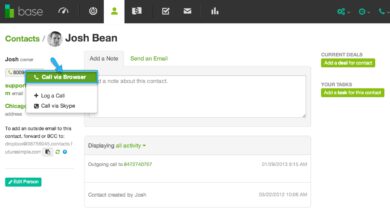CRM Product Based Companies: 7 Powerful Strategies to Skyrocket Growth
In today’s hyper-competitive market, CRM product based companies are redefining customer engagement. By blending cutting-edge technology with strategic relationship management, they’re not just selling products—they’re building ecosystems. Let’s dive into how these companies thrive.
Understanding CRM Product Based Companies

CRM product based companies are organizations that develop, market, and sell Customer Relationship Management (CRM) software as a core product offering. Unlike service-based CRM consultants or integrators, these companies focus on creating scalable, feature-rich platforms designed to help businesses manage interactions with customers, streamline processes, and improve profitability.
What Defines a CRM Product Based Company?
A CRM product based company builds and maintains proprietary CRM software. This software is typically offered via subscription models (SaaS), perpetual licensing, or cloud-hosted solutions. These companies invest heavily in R&D to ensure their platforms remain competitive, secure, and user-friendly.
- They own the intellectual property of the CRM platform.
- Revenue is primarily generated through software sales, subscriptions, or licensing.
- They often provide customer support, updates, and integrations as part of their service.
Key Differences from Service-Based CRM Firms
While CRM consulting firms help businesses implement and optimize CRM systems, product based companies are the creators of those systems. For example, Salesforce and HubSpot are product based, whereas a digital agency helping clients set up HubSpot is service oriented.
- Product companies focus on platform innovation; service firms focus on customization and training.
- Revenue models differ: recurring SaaS fees vs. project-based consulting.
- Scalability: product companies can scale globally with minimal marginal cost; service firms scale linearly with manpower.
“The future of business isn’t just about selling software—it’s about selling relationships, powered by intelligent platforms.” — Marc Benioff, CEO of Salesforce
Top 7 CRM Product Based Companies Shaping the Industry
The CRM landscape is dominated by a mix of established giants and agile innovators. These companies not only lead in market share but also drive technological advancements like AI integration, automation, and predictive analytics.
1. Salesforce: The Market Leader
Salesforce remains the undisputed leader in CRM product based companies. Founded in 1999, it pioneered the SaaS model and continues to dominate with its comprehensive ecosystem, including Sales Cloud, Service Cloud, Marketing Cloud, and Einstein AI.
- Market share: Over 19% in global CRM software (Statista, 2023).
- Revenue: $31.4 billion in FY2023.
- Innovation: Acquired Slack to enhance collaboration within its platform.
Learn more at Salesforce Official Site.
2. HubSpot: The Inbound Powerhouse
HubSpot has redefined CRM for small and mid-sized businesses with its free CRM core and inbound marketing philosophy. Its all-in-one platform integrates CRM, marketing, sales, and customer service tools.
- Over 200,000 customers globally.
- Known for user-friendly interface and educational content.
- Strong focus on automation and lead nurturing.
Explore HubSpot’s offerings at HubSpot.com.
3. Microsoft Dynamics 365
Microsoft leverages its enterprise ecosystem to offer Dynamics 365, a robust CRM and ERP hybrid. It’s ideal for organizations already using Microsoft 365, Azure, and Office tools.
- Deep integration with Outlook, Teams, and Power BI.
- Strong in verticals like manufacturing, retail, and finance.
- AI-powered insights through Azure Cognitive Services.
Visit Microsoft Dynamics for details.
4. Zoho CRM: The Affordable Innovator
Zoho CRM stands out for its affordability and extensive feature set. With over 50 million users, Zoho serves startups to large enterprises across 180+ countries.
- Offers a free plan with robust capabilities.
- AI assistant Zia provides predictive sales forecasting.
- Highly customizable with Zoho Creator and Deluge scripting.
Check out Zoho CRM for pricing and features.
5. Oracle CX (Customer Experience)
Oracle’s CRM suite, part of its broader CX Cloud, targets large enterprises needing complex, data-intensive solutions. It excels in AI-driven customer data management and omnichannel engagement.
- Strong in B2B and high-volume transaction environments.
- Uses machine learning for real-time personalization.
- Integrated with Oracle’s database and ERP systems.
Learn more at Oracle CX.
6. SAP Customer Experience
SAP’s CRM solutions are tailored for global enterprises with complex supply chains and customer networks. Its C/4HANA suite unifies marketing, sales, service, and commerce.
- Strong integration with SAP ERP and S/4HANA.
- Focused on B2B and industrial sectors.
- Offers advanced analytics and IoT integration.
Explore SAP’s CRM tools at SAP Customer Experience.
7. Pipedrive: The Sales-Focused CRM
Pipedrive is built for sales teams who want a visual, pipeline-driven CRM. It’s intuitive, mobile-friendly, and ideal for SMBs focused on closing deals.
- Drag-and-drop interface for managing sales stages.
- Strong automation for follow-ups and reminders.
- Integrates with over 400 tools including Gmail, Slack, and Zoom.
Visit Pipedrive to start a free trial.
Core Features That Define Successful CRM Product Based Companies
What separates top CRM product based companies from the rest? It’s not just about having a platform—it’s about delivering value through innovation, usability, and integration.
1. Automation and Workflow Management
Automation is a cornerstone of modern CRM systems. Leading CRM product based companies offer robust workflow engines that reduce manual tasks, improve accuracy, and accelerate sales cycles.
- Automated lead assignment based on territory or workload.
- Email sequences triggered by customer behavior.
- Task reminders and follow-up scheduling.
For example, HubSpot’s workflows can nurture leads based on website visits or email opens, significantly boosting conversion rates.
2. AI and Predictive Analytics
Artificial Intelligence is no longer a luxury—it’s a necessity. CRM product based companies like Salesforce (Einstein AI) and Zoho (Zia) use machine learning to predict customer behavior, recommend next steps, and forecast sales.
- Predictive lead scoring to prioritize high-value prospects.
- Sentiment analysis in customer emails and calls.
- Churn prediction models to retain at-risk customers.
According to Gartner, by 2025, 75% of CRM interactions will involve AI-driven insights.
3. Omnichannel Customer Engagement
Customers interact across email, social media, chat, phone, and in-person. Top CRM product based companies provide unified platforms that consolidate all touchpoints into a single customer view.
- Integration with WhatsApp, Facebook Messenger, and live chat.
- Centralized communication logs for support teams.
- Consistent messaging across channels via templates and AI.
Salesforce Service Cloud, for instance, enables agents to manage cases from any channel without switching apps.
How CRM Product Based Companies Drive Business Growth
It’s not enough to build a great product—CRM product based companies must demonstrate tangible ROI for their clients. Their platforms are designed to directly impact revenue, customer retention, and operational efficiency.
1. Increasing Sales Conversion Rates
CRM systems streamline the sales process from lead capture to closing. By providing sales teams with real-time data, activity tracking, and performance analytics, these platforms help close more deals faster.
- Lead scoring identifies high-potential prospects.
- Activity timelines show engagement history.
- Mobile access allows reps to update deals on the go.
A study by Nucleus Research found that CRM systems deliver an average $8.70 return for every dollar spent.
2. Enhancing Customer Retention and Loyalty
Retaining customers is cheaper than acquiring new ones. CRM product based companies equip businesses with tools to deliver personalized experiences, resolve issues quickly, and build long-term relationships.
- Customer health scores track satisfaction and usage.
- Automated loyalty programs and rewards.
- Proactive support via AI chatbots and ticketing systems.
For example, Zoho CRM’s loyalty program module helps businesses reward repeat customers automatically.
3. Improving Operational Efficiency
Manual data entry, duplicate records, and poor interdepartmental communication are productivity killers. CRM product based companies eliminate these inefficiencies through automation, integration, and centralized databases.
- Single source of truth for customer data.
- Integration with ERP, marketing automation, and accounting software.
- Customizable dashboards for real-time performance monitoring.
Microsoft Dynamics 365, for instance, reduces data silos by syncing CRM data with financial systems in real time.
Innovation Trends in CRM Product Based Companies
The CRM industry is evolving rapidly. To stay competitive, CRM product based companies are investing in emerging technologies and shifting their strategies to meet changing customer expectations.
1. AI-Powered Personalization at Scale
Customers expect personalized experiences. CRM product based companies are leveraging AI to deliver tailored content, product recommendations, and communication timing.
- Dynamic email content based on user behavior.
- Personalized landing pages and offers.
- AI-driven chatbots that remember past interactions.
Salesforce’s Einstein GPT generates personalized sales emails and service responses using natural language processing.
2. Integration with Communication Platforms
CRM is no longer a standalone tool. Leading CRM product based companies are embedding their systems into daily workflows via integrations with Slack, Microsoft Teams, and Zoom.
- Log calls and meetings directly from Zoom to CRM.
- Receive CRM alerts in Slack channels.
- Update deal stages without leaving Teams.
HubSpot’s integration with Slack allows teams to get notified when a lead visits a pricing page.
3. Mobile-First CRM Experiences
With remote work and field sales on the rise, mobile CRM access is critical. CRM product based companies are optimizing their apps for iOS and Android, ensuring full functionality on smartphones and tablets.
- Offline mode for data entry without internet.
- GPS-based territory management.
- Voice-to-text notes and photo capture for field reps.
Pipedrive’s mobile app, for example, allows users to manage their entire sales pipeline from their phone.
Challenges Faced by CRM Product Based Companies
Despite their success, CRM product based companies face significant challenges in a crowded and fast-moving market.
1. Market Saturation and Competition
The CRM space is highly competitive, with dozens of players offering similar features. Standing out requires continuous innovation and differentiation.
- New entrants with niche focus (e.g., CRM for real estate).
- Price wars among mid-tier providers.
- Customer reluctance to switch due to data migration costs.
To combat this, companies like Zoho offer freemium models to attract users and upsell later.
2. Data Privacy and Security Concerns
CRM systems store sensitive customer data, making them targets for cyberattacks. Compliance with GDPR, CCPA, and other regulations is non-negotiable.
- Need for end-to-end encryption and multi-factor authentication.
- Regular security audits and penetration testing.
- Transparent data handling policies.
Salesforce, for example, has a dedicated Trust Center that details its security practices.
3. User Adoption and Training
Even the best CRM fails if employees don’t use it. CRM product based companies must invest in onboarding, training, and user experience design.
- Intuitive UI/UX to reduce learning curve.
- In-app guidance and tutorials.
- Customer success teams to drive adoption.
HubSpot Academy offers free certifications to help users master its platform.
Future Outlook: Where CRM Product Based Companies Are Headed
The future of CRM product based companies lies in deeper intelligence, broader integration, and hyper-personalization. As customer expectations rise, these companies must evolve to remain relevant.
1. Embedded AI and Generative CRM
Generative AI will transform how CRM systems assist users. Instead of just analyzing data, future CRMs will create content, suggest strategies, and even draft outreach messages.
- AI-generated sales proposals and contracts.
- Automated meeting summaries from call recordings.
- Predictive customer journey mapping.
Salesforce’s Einstein GPT is already pioneering this space.
2. Industry-Specific CRM Solutions
One-size-fits-all CRMs are becoming obsolete. CRM product based companies are developing vertical-specific solutions for healthcare, real estate, education, and manufacturing.
- Healthcare CRM with HIPAA compliance and patient scheduling.
- Real estate CRM with property matching and virtual tour tracking.
- Education CRM for student enrollment and alumni engagement.
Zoho CRM Plus offers industry templates to accelerate deployment.
3. CRM and the Rise of Customer Data Platforms (CDPs)
CRM systems are merging with Customer Data Platforms to create unified customer profiles from multiple sources—web, app, offline, IoT.
- Real-time data unification from 100+ sources.
- Identity resolution to merge duplicate records.
- Segmentation and activation across marketing channels.
Oracle Unity CDP integrates seamlessly with its CRM suite for holistic customer insights.
How to Choose the Right CRM Product Based Platform for Your Business
With so many CRM product based companies offering diverse solutions, selecting the right one can be overwhelming. Here’s a step-by-step guide to help you decide.
1. Assess Your Business Needs
Start by identifying your goals: Are you looking to improve sales, enhance customer service, or automate marketing?
- Small businesses: Consider HubSpot or Zoho for affordability.
- Enterprises: Look at Salesforce, Microsoft Dynamics, or SAP.
- Sales-focused teams: Pipedrive offers excellent pipeline management.
2. Evaluate Integration Capabilities
Your CRM should work seamlessly with existing tools like email, calendar, ERP, and marketing platforms.
- Check native integrations (e.g., Gmail, Outlook, Shopify).
- Look for API access for custom connections.
- Ensure two-way data sync to avoid manual entry.
3. Prioritize User Experience and Support
A powerful CRM is useless if your team won’t use it. Prioritize platforms with intuitive design and strong customer support.
- Free trials and demos to test usability.
- Availability of training resources and certifications.
- 24/7 support and community forums.
What are CRM product based companies?
CRM product based companies are businesses that develop and sell CRM software as their primary product. Examples include Salesforce, HubSpot, and Zoho. They differ from service-based firms that only implement or customize CRM systems.
Which CRM product based company is best for small businesses?
HubSpot and Zoho CRM are highly recommended for small businesses due to their free tiers, ease of use, and scalable features. Pipedrive is also excellent for sales-driven startups.
How do CRM product based companies use AI?
They integrate AI for lead scoring, predictive analytics, chatbots, and automated content generation. Salesforce Einstein and Zoho Zia are examples of AI engines within CRM platforms.
Are CRM product based platforms secure?
Yes, top CRM product based companies invest heavily in security, including encryption, compliance certifications (GDPR, SOC 2), and regular audits. Always verify a provider’s security standards before adoption.
Can CRM product based systems integrate with other software?
Absolutely. Leading CRM platforms offer hundreds of integrations with tools like Gmail, Slack, Zoom, and ERP systems. APIs allow for custom integrations as well.
CRM product based companies are at the heart of digital transformation in customer relationship management. From Salesforce’s AI-driven insights to Zoho’s affordability and HubSpot’s inbound philosophy, these platforms empower businesses to grow smarter. As AI, CDPs, and industry-specific solutions evolve, the future of CRM is not just about managing contacts—it’s about anticipating needs, personalizing experiences, and building lasting loyalty. Choosing the right CRM product based company depends on your goals, size, and industry, but one thing is clear: the right platform can be a game-changer.
Further Reading:







